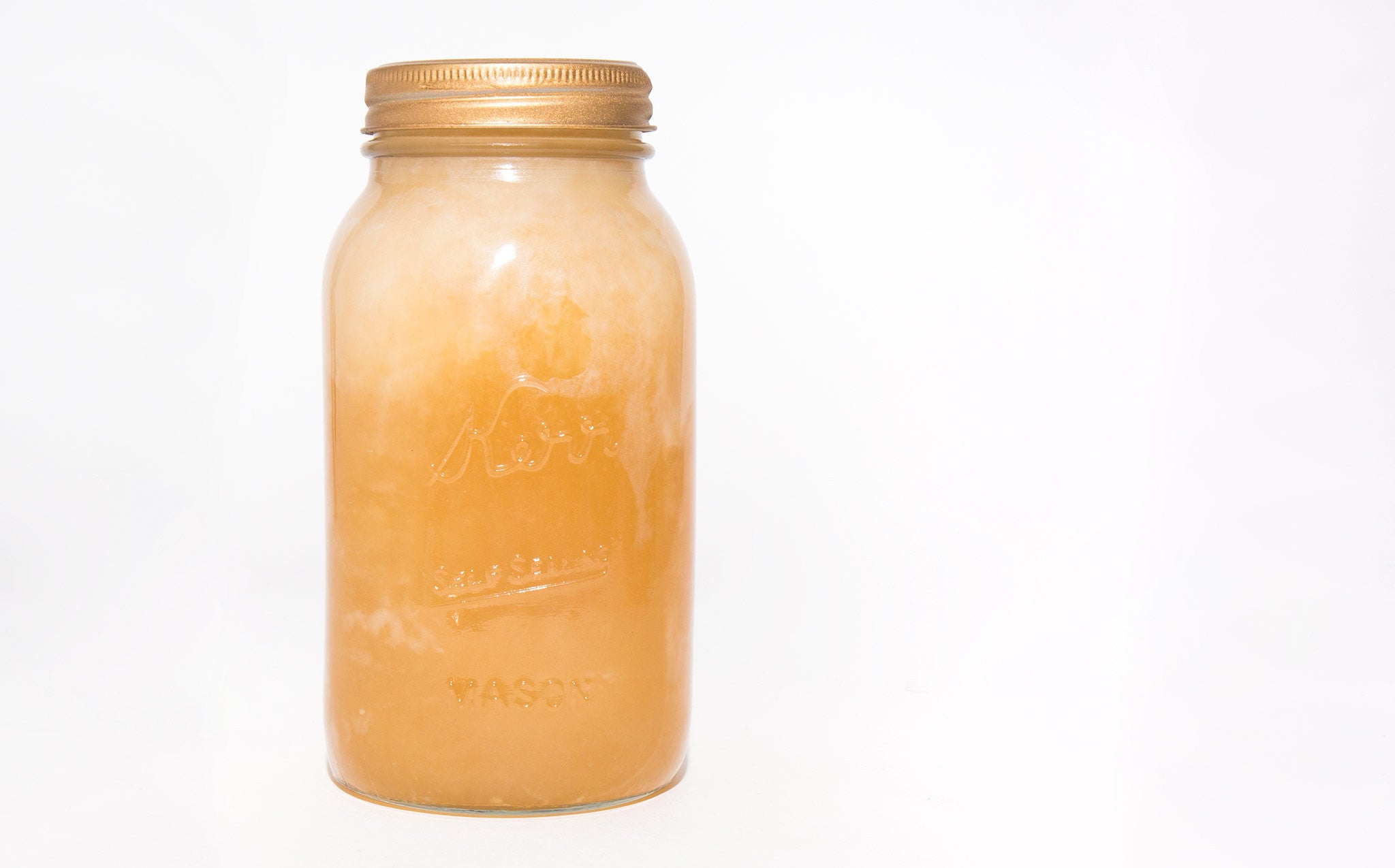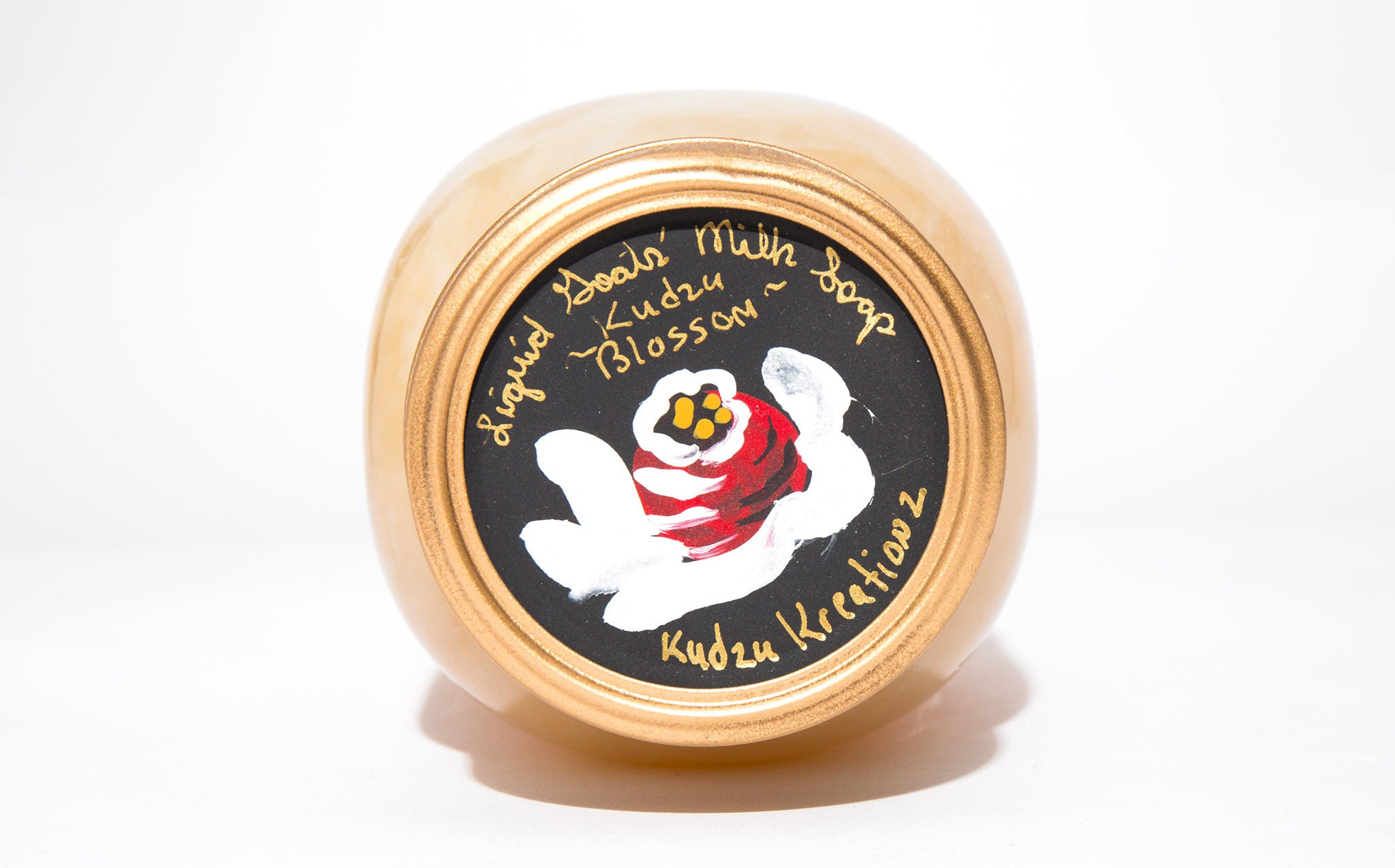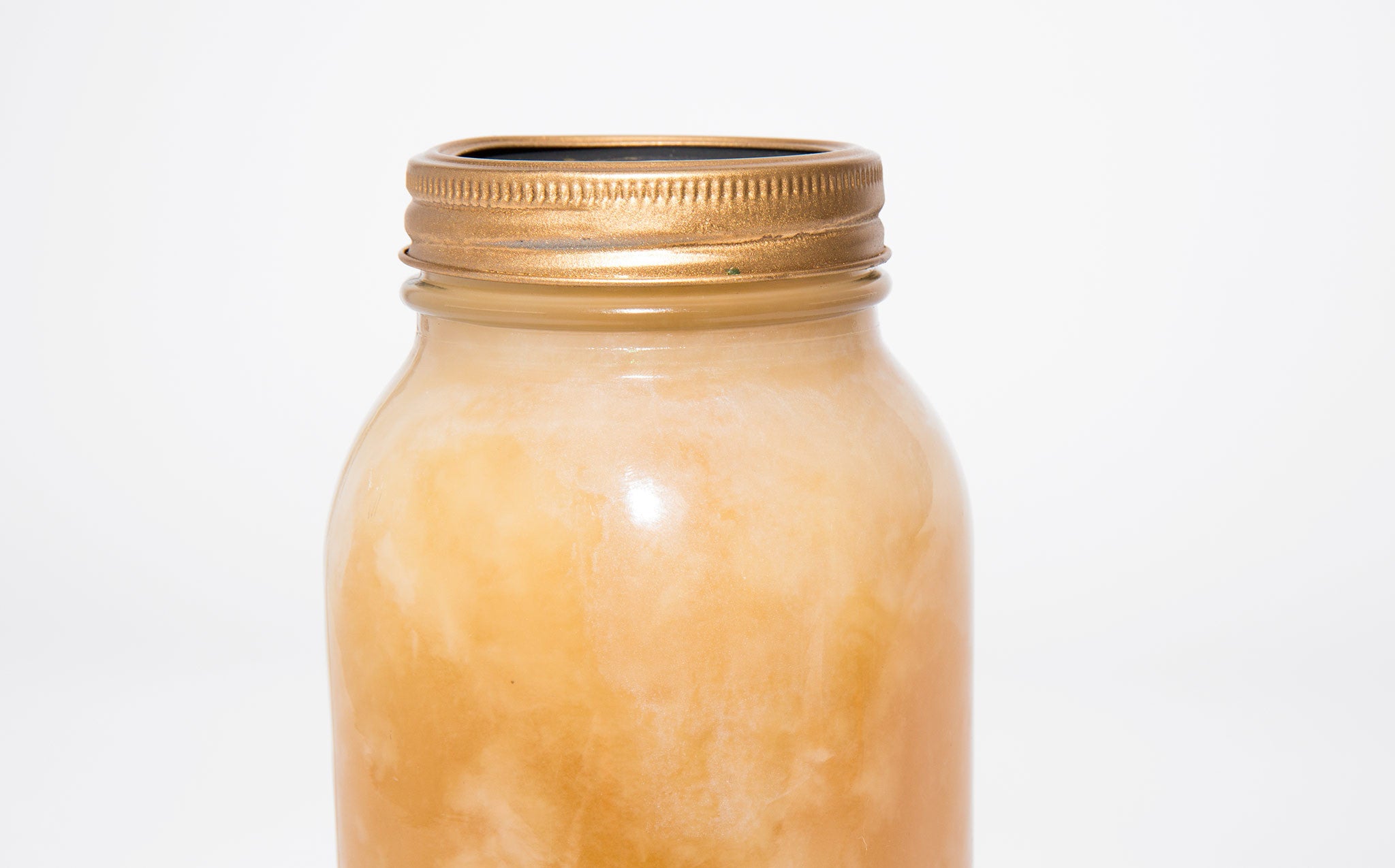Gentle, kudzu scented liquid goat's milk soap for bathing or hand washing. From Simple Life Farm, homesteaded in 1890 in the Appalachian Foothills of Northwest Alabama. Simple Life produces hand crafted soaps and body care products using their own farm raised ingredients such as fresh goats' milk from their herd of Nubian goats, natural botanicals from their herb hardens and forest areas and beeswax and honey from their own bee hives.
32 ounce BPA free glass re usable jar.
Kudzu was called the "Asian wonder vine" back in the 1930's and was used as animal feed and deemed the answer for soil erosion. Southern farmers were given a subsidy to sow topsoil with the invasive vine and the Soil Conservation Service employed hundreds of young men during the depression to plant kudzu through the Civilian Conservation Corps. Not realizing the environmental damage this would eventually cause, the kudzu vines grew virtually unchecked in the perfectly suited climate of the southeastern US, earning it the nickname "the vine that ate the south". The vines grew as much as a foot per day during the summer months, climbing and swallowing anything in their path. By 1997 Kudzu had been placed on the "federal noxious weed list" and today covers over seven million acres of land in the southeastern United States, mostly in Alabama, Georgia, Tennessee, Florida, and Mississippi.
Description
Gentle, kudzu scented liquid goat's milk soap for bathing or hand washing. From Simple Life Farm, homesteaded in 1890 in the Appalachian Foothills of Northwest Alabama. Simple Life produces hand crafted soaps and body care products using their own farm raised ingredients such as fresh goats' milk from their herd of Nubian goats, natural botanicals from their herb gardens and forest areas and beeswax and honey from their own bee hives.
Sizing + Info
Does not contain any animal fats, harsh chemicals, whiteners, detergents or artificial preservatives.
Sulfate and Paraben free.
32 ounce BPA-free glass reusable mason jar.
Shipping
$8 standard shipping, free shipping on orders of $100 or more



The Kudzu Vine
Kudzu was called the "Asian wonder vine" back in the 1930's and was used as animal feed and deemed the answer for soil erosion. Southern farmers were given a subsidy to sow topsoil with the invasive vine and the Soil Conservation Service employed hundreds of young men during the depression to plant kudzu through the Civilian Conservation Corps. Not realizing the environmental damage this would eventually cause, the kudzu vines grew virtually unchecked in the perfectly suited climate of the southeastern US, earning it the nickname "the vine that ate the south". The vines grew as much as a foot per day during the summer months, climbing and swallowing anything in their path. By 1997 Kudzu had been placed on the "federal noxious weed list" and today covers over seven million acres of land in the southeastern United States, mostly in Alabama, Georgia, Tennessee, Florida, and Mississippi.